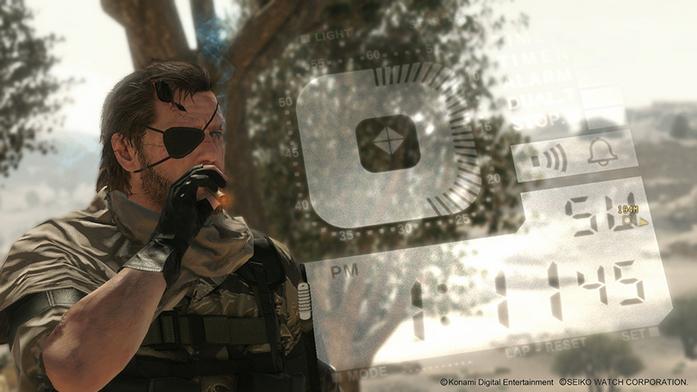By Jordan Ryder
[email protected]
9.5 out of 10
I crouched behind a boulder, hoping the soldier would keep walking rather than investigate the shadow he saw as I took cover. The wind started whipping up, flinging sand that obscured the air. I started moving, the sand storm providing perfect cover for my infiltration of the enemy stronghold.
Organic moments like this made Phantom Pain one of the best games I may have ever played. The sheer amount of detail in every aspect is staggering.
Phantom Pain is an open world tactical stealth game in which the player controls Big Boss, legendary Special Forces operator. Boss infiltrates enemy positions to gather intelligence, extract prisoners, or eliminate key threats. The game’s open-ended nature allows the players to execute the mission however they see fit and gives them a long list of options. This is a patient person’s game. Rushing in without scouting is going to be disastrous. I had more than one instance in which I was discovered by a soldier I didn’t see after failing to scout the area properly. So be prepared to spend a chunk of time simply observing your target first.
The open world of the game affects how players can perform the mission as well. Guard shifts change, enemy reinforcements can arrive, and even the weather can influence the mission. The tactics you use in one mission also affect the world because enemies adapt to what you do. When I started relying on sniper rifles, they got armored helmets. When I started attacking at night, they equipped themselves with flashlights and flares.
The other half of the game is base management. The players have a base of operations that they can improve and recruit soldiers to run. However, your recruits come from the ranks of the enemy by subduing them with nonlethal methods instead of killing them. The two halves play off each other well, though. It adds a risk/reward dimension to stealth and combat to get people for your base; improving the base gives you better equipment and new abilities to use in the field.
The depth of the game mechanics does work against it, though. There is a reason the Internet has become littered with articles titled “Ten Tips For Playing Phantom Pain” — it does a poor of job of explaining things. For example, it failed to tell me that the silencer on my weapon would break (and it did when I was surrounded by enemies), and enemies you have knocked unconscious will wake up again. I recommend reading a few of those articles before playing.
I struggled a lot with giving this game a score. Its game-play flaws are minor, but there are several bugs causing it to crash and, even worse, erase saved data. I got hit with an offline/online mode bug that wiped out five hours of progress. While it was disgraceful of Konami to release a game in which this happens, I decided not to factor that in when scoring. I remembered Assassins Creed Unity, in which, once the bugs were patched, the game proved to be a solid title.
So with that note, I give Phantom Pain a 9.5/10.



